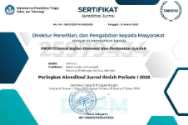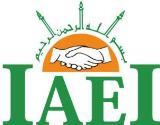Pengelolaan Keuangan Keluarga Perspektif Islamic Wealth Management
(1) * Julian Maharani
 (UIN Maulana Malik Ibrahim Malang)
(UIN Maulana Malik Ibrahim Malang) Indonesia
(2) Yuniarti Hidayah Suyoso Putra (UIN Maulana Malik Ibrahim Malang)
Indonesia
(*) Corresponding Author
AbstractThe phenomenon of this research is when the Covid-19 pandemic spread, the divorce rate increased drastically, the highest percentage was due to the economy. Therefore the researcher wants to analyze family financial management from the perspective of Islamic wealth management. The aim is to provide a view that IWM can be used as a basis for better managing family finances. The author uses a qualitative approach method with field research (field studies) to obtain primary data that is in accordance with the issues raised. Besides that, the researcher also combined with a literature review system related to Islamic Wealth Management. The results of this study are the three families with different backgrounds, it can be said that unconsciously they have followed the principles of Islamic wealth management well, only in the last principle that has not been applied today and all informants have been aware of their primary, secondary and their tertiary. And they have considered that with the possessions they have been able to meet their needs.
|
Keywords
Wealth Management; Syariah; Family Finance
Full Text: PDF
Refbacks
- There are currently no refbacks.
Copyright (c) 2023 Julian Maharani
This work is licensed under a Creative Commons Attribution-NonCommercial-ShareAlike 4.0 International License.
Profit : Jurnal Kajian Ekonomi dan Perbankan Syariah
Published by Islamic Faculty of Nurul Jadid University, Probolinggo, East Java, Indonesia.
Published by Islamic Faculty of Nurul Jadid University, Probolinggo, East Java, Indonesia.





.jpg)



